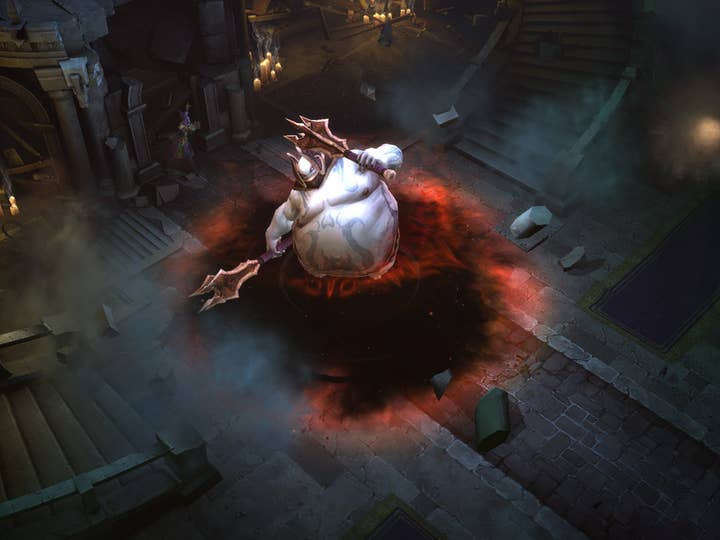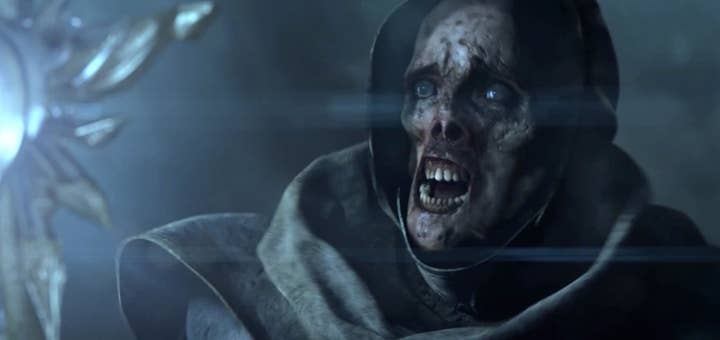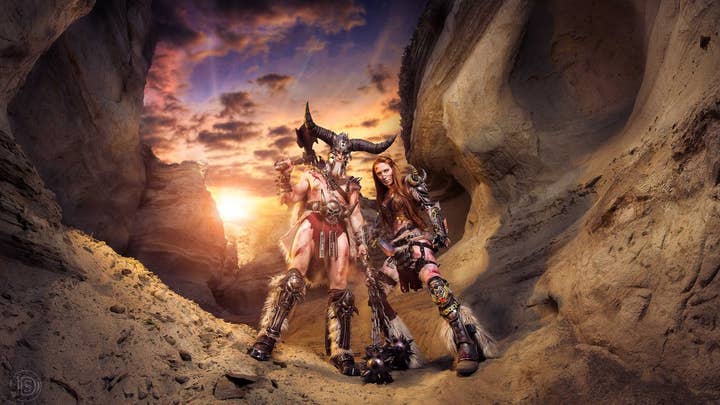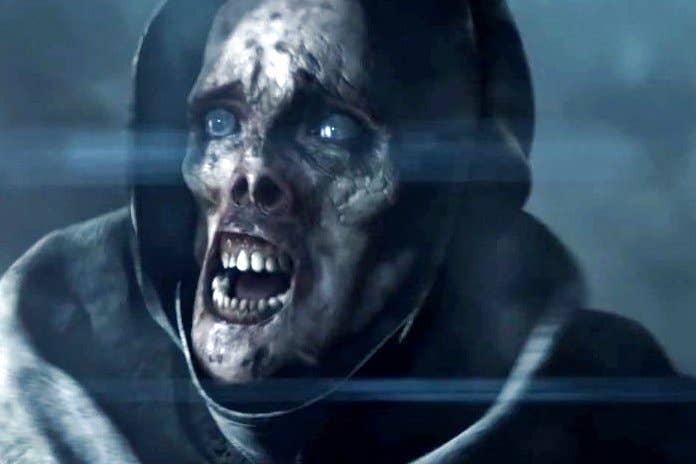Diablo III: We learnt a lot of things the hard way
Game director Josh Mosqueira on the living legacy that is Blizzard's Diablo
It's hard to believe Diablo III is nearing the third anniversary of its release on PC, but thanks to a steady evolution and a more recent debut to the console audience it's a game that's still played, still discussed, and still sold.
Not that mistakes weren't made (awkward glance at the boarded up auction house) and internet feedback wasn't characteristically strident, but Blizzard's Josh Mosqueira spoke openly to GamesIndustry.biz about the lessons learned along the way, and why Diablo III is a love letter to the series.
I think in a lot of ways the vision behind Diablo III has remained true. There were seven pillars that defined the Diablo III experience and a lot of the things that the team at the time thought were important - making sure it was accessible, really trying to capture the dark gothic tone, making sure the classes are overpowered - all that stuff remains at the heart of the DNA.
When we really started talking about Reaper of Souls, one of the things we say at Blizzard is we need to concentrate the coolness. So what we did is took those seven pillars and we crunched them down into what we feel are the three essential ones. Like if any Diablo game nails these three things it will be a Diablo.
Focusing on the fantasy, making sure that we don't lose sight of the fact that you're playing these epic heroes and you're fighting the forces of darkness. You also want to make sure there's an endgame for everyone, you can play ten hours or a thousand hours, and we have to make sure there's something for you to do. Which is where the idea of Adventure Mode really came from, it allows you to go anywhere and slay anything.

It also allowed us to let the story be its own thing, because we now we don't have to worry about players seeing [scholar Deckard] Cain die 100,000 times, they can only see it once, we can make it meaningful.
The last is just making online matter, because we feel that at its heart Diablo plays best when you're playing with other people. Those three pillars came out of the initial vision for Diablo, but we also learnt a lot of things the hard way.
The shadow of Diablo II over Diablo III was one that it even took the team about a year after Diablo III shipped to really understand that Diablo III was its own game. Part of it was that Diablo pioneered the whole idea of dropping loot, or made it super mainstream, but players have evolved in their ability to parse and enjoy loot based games in the ten years between Diablo II and Diablo III. Unfortunately Diablo II hadn't quite evolved thinking wise at the same pace. So we had this idea that we wanted players to keeping playing Diablo for ten years and we're going to get it perfect out of the gate. Forgetting that Diablo II was patched, there was an expansion...
Yes. All the intentions were the right ones, but then we realized we fundamentally sabotaged what is inherently awesome about Diablo, which is killing a monster and getting the loot. And so looking back I think it was a good thing we did it mostly because we realized at the end of the day any decision that compromises the integrity of our game is one that we cannot allow to happen. At the end of the day a business is a business but at the end of the day we make games, and if the game is good people will buy it.
"We fundamentally sabotaged what is inherently awesome about Diablo, killing a monster and getting the loot"
It was actually pretty cool to see how quickly - at all levels at Blizzard - everybody rallied around the idea, OK we need to make a bold statement and say "you know what? It was an experiment, it failed, let's move on and tell everybody we're serious about how to fix it."
I think that's interesting because for us it's like second nature. Before World Of Warcraft there was a box product every couple of years and maybe a patch between and that was it, but World Of Warcraft started developing our thinking and methodology around always keeping the game alive, always keeping it evolving, so for us we see, when we launch a game, a lot of people see it as an endpoint, a celebration. For us it's really a starting point.
That's when a lot of players are playing it, we're playing it, we're getting feedback, we're responding to the feedback, we're adjusting for it. One of the things that I love about working at Blizzard and having somebody like Mike Morhaime making all those decisions is that he understands the value of player engagement. If you have a vibrant community that is playing your game there's value in that. You don't have to keep trying to drip feed things to them. Every time we release a patch for Diablo more players come back, some people go away and there's this ebb and flow and it feels like Diablo is a living game, that's because it very much is a living game. Right now we're trying to build that living legacy with all the patches for Reaper Of Souls.

Depends what kind of player you are. Our really hardcore community? They obsesses about the little details like "that changed by 5.5 per cent, finally they fixed that." So that's why we tend to have very transparent communication, letting them know that we're making these changes.
But I think the vast majority of players, I think when they see there's new content, like for example when we added some new zones to Adventure Mode, we have a whole slew of new treasure goblins we're adding to the game...
"Diablo was a console game hiding inside of a PC game"
You're going to learn to love to hate those guys now. I think content really brings people back and I think Diablo is the kind of game that it's OK for you to level up a couple of characters to 70, you had a good time, but then life gets busy, you take a break from it. The idea with doing these patches is "oh, there's a new patch for Diablo, maybe I should go back?" and it's one of those games where you could stop playing for a year and within five minutes you're back where you were before because it's so accessible, there's not a huge barrier to entry. You just start clicking away, you start killing monsters, you start remembering how to use your skills and next thing you know you're back to level 70.
It's been really heartwarming to see the reception of console. And in fact when people argue which version is better I think we did our job correctly. I would say - just from a very biased perspective - that for me, when I look at Diablo, I always thought that it was a console game hiding inside of a PC game.

It's all about fast, visceral action, it's really rewarding, it's beautiful to look at. I think the most important thing though was needing the keep the players in the moment. I remember early on we were having one of our first playtests and I noticed that having players walk up to every little gold pile and every weapon, they were pressing the A button all the time. And that's one of those moments where I thought to myself well first of all we can't let that happen because it's going to be terrible, so we've got to auto-pick up stuff. I also realized I just saw a player pick up around 15 items, all blue items, that's way too many items. And that's where Loot 2.0 came up, from the idea that on console we didn't want to simplify the experience, we didn't want to dumb it down, but we needed to streamline it.
"We're trying to build a legacy now... this is our love letter to Diablo."
We have pretty much the team that wrapped up Reaper Of Souls. We're at the point where I think we've gotten most of what we wanted into Reaper Of Souls and now we're really just entering this... we're trying to build a legacy now. I think we're seeing as a team that this is our chance, this is our love letter to Diablo.
We play the game non-stop, we're super passionate about it, and now we get to start adding all the things that we really get geeked out about, that our players also get excited about. We have such a strong, solid foundation. I think Adventure Mode, looking back, we didn't realize it but it's such a powerful engine for us to be able to add new content, vary the experience and it really unshackled our ability to really let the players sort of explore and have fun.

